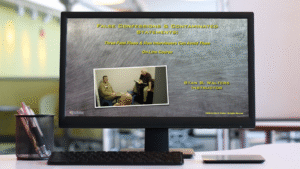Interview and Interrogation Techniques:
False Confessions and Contaminated Statements

False confessions rarely occur by accident. They emerge from interviewer behavior that contaminates memory, increases compliance, and distorts the truth.
This course exposes how faulty tactics, leading questions, and suggestive pressure undermine interviews and produce false confessions.
You’ll learn how to prevent these critical errors—and how to recognize the red flags when they’ve already occurred.
What You Will Learn
- The most common causes of false confessions.
- How poor interview tactics contaminate subject responses.
- Why suggestibility and fatigue lead to compliance.
- The legal and ethical consequences of tainted interviews.
- How to document clean, defensible statements that hold up in court.
Why It Matters
False confessions don’t just derail investigations — they destroy lives and careers.
When interviewers use outdated, high-pressure tactics, they risk contaminating the process and losing the truth.
This course gives you the tools to prevent irreversible errors — and protect the integrity of every interview you conduct.
Who Should Register
- Investigators, detectives, and first responders conducting suspect interviews.
- Supervisors reviewing statements for reliability or coercion concerns.
- Fire/arson, regulatory, and SIU professionals who rely on accurate, voluntary admissions.
- Anyone responsible for ensuring interviews meet legal, ethical, and evidentiary standards.
What happens in the interview room echoes in the courtroom.™

